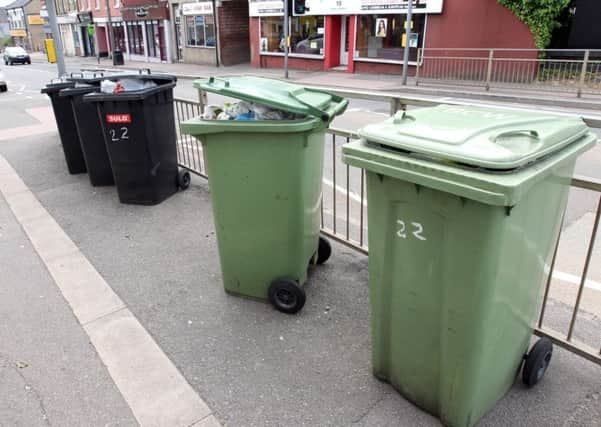In Hampshire, the push for efficient waste management has led to the introduction of Bulk Recycling Kits. These kits have caused a revolution in how residents and businesses handle their recyclables, offering a comprehensive solution to streamline the recycling process. With growing concerns about environmental impact, these kits provide an effective way to enhance recycling efforts and reduce the amount of waste sent to landfills.
The Bulk Recycling Kits in Hampshire come with several benefits and features to make recycling easier and more organized. From sorting materials to properly disposing of hazardous chemicals and electronic waste, these kits offer guidance on various aspects of recycling. This article will delve into the ins and outs of using these kits, provide tips on maximizing their effectiveness, and explore how they fit into the broader context of waste removal and refuse collection in the region.
Understanding Bulk Recycling Kits in Hampshire
Bulk Recycling Kits in Hampshire offer a comprehensive solution for efficient waste management. These kits typically include 65-gallon recycling carts provided to single-family, two, and three-unit properties. Residents have the option to rent additional carts for a monthly fee of $3.00 per unit. The kits allow for co-mingled recycling, meaning plastic, glass, metal, and paper products can be mixed together.
There’s no limit to the number of recycling bins or quantity of recyclables that households can place at the curb for collection. Residents can use their own clearly marked recycling bins, not exceeding 35 gallons or 50 pounds. All bins placed at the curb will be collected.
To enhance recycling efforts, high-quality machinery like plastic balers are available. These compact plastic materials into blocks for proper storage and collection. By using these kits, residents and businesses can reduce their carbon footprint and contribute to the conservation of natural resources.
Sorting and Preparing Materials for Bulk Recycling
Proper sorting and preparation of materials are crucial for efficient bulk recycling in Hampshire. Residents should keep recyclables loose in their carts, except for shredded paper, which needs to be placed in clear bags tied closed and no larger than a basketball. It’s essential to empty and flatten cardboard boxes before recycling to save space and remove non-recyclable packing materials.
To ensure effective recycling, individuals should:
- Empty and rinse containers to remove food residue
- Keep paper and cardboard dry
- Close recycling bin lids to protect from rain
- Avoid placing recyclables in plastic bags
- Remove liquids from containers
Proper cleaning prevents mold growth and contamination of other recyclables. For containers that are difficult to clean, scraping with a spatula or paper towel may suffice. If rinsing is necessary, fill the container with water, let it sit, and shake before pouring out the liquid to minimize water usage.
Maximizing the Use of Bulk Recycling Kits
To optimize the use of bulk recycling kits in Hampshire, residents and businesses can follow several strategies. Reducing the size of boxes, containers, and bags helps lower shipping costs and saves space. Experimenting with packaging sizes and product positioning allows for more efficient use of recycling bins. Using recycled materials, such as cardboard or paperboard, keeps resources in use and generates less waste.
To improve sustainability, reviewing current processing methods through line analysis can identify bottlenecks and areas for improvement. This approach helps increase efficiency and reduce product damage during processing. Minimizing supply chain processes and working closely with suppliers and manufacturers can also enhance recycling efforts. For commercial needs or large-scale recycling, choosing the right size kit, such as the 28 Gallon Recycle Kit, can be more economical for businesses dealing with high volumes of recyclables.
Conclusion
The implementation of Bulk Recycling Kits in Hampshire has a significant impact on waste management practices. These kits offer a user-friendly approach to enhance recycling efforts, making it easier for residents and businesses to sort and dispose of their recyclables properly. By providing guidance on various aspects of recycling, from sorting materials to handling hazardous waste, these kits play a crucial role in reducing the amount of waste sent to landfills and conserving natural resources.
To wrap up, the success of bulk recycling in Hampshire depends on the active participation of the community. By following the tips and tricks outlined in this article, residents and businesses can make the most of their recycling kits and contribute to a more sustainable future. The ongoing commitment to efficient waste management not only benefits the local environment but also sets an example for other regions to follow in their recycling efforts.
FAQs
How can recycling be made more effective?
To enhance recycling efficiency, adhere to these guidelines: avoid using bags entirely, do not recycle items smaller than a credit card, ensure recyclables are clean, empty, and dry, refrain from recycling combined materials, familiarize yourself with the types of plastics that are recyclable, and avoid wishcycling. Educating yourself on proper recycling practices is also beneficial.
Which recyclable materials offer the most profit?
The most lucrative items to recycle, which can also generate cash, include aluminum cans, plastic and glass bottles, ink cartridges, cardboard, electronic waste, and scrap metal.
What is the most effectively recycled material?
Aluminum ranks as one of the most effectively recycled materials. It undergoes processes such as shredding into small pieces or crushing into bales, which are then melted in an aluminum smelter to produce molten aluminum.
What are the best practices for recycling waste properly?
When recycling, ensure to flatten boxes, remove all food and liquid residues from containers, avoid enclosing recyclables in plastic bags (as they are not recyclable), and double-check that the items match the recycling bin’s requirements.




